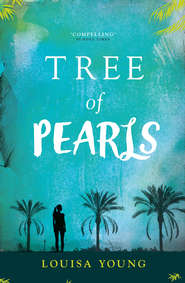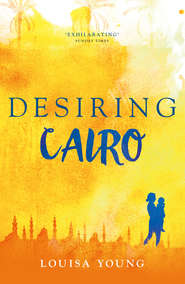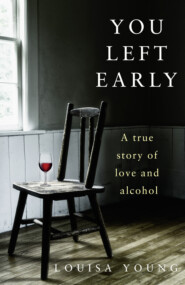По всем вопросам обращайтесь на: info@litportal.ru
(©) 2003-2024.
✖
The Heroes’ Welcome
Автор
Год написания книги
2018
Настройки чтения
Размер шрифта
Высота строк
Поля
The ‘we’ stopped Jacqueline in her movement towards the bell. She turned, looked, saw: gold ring.
‘Is Sir Robert at home?’ Riley said gently. ‘I need to speak to him. I have left it rather late already …’
‘So you have,’ said Jacqueline. She raised her eyes to stare at him, at her daughter, at him again. No one dropped from anyone else’s look.
‘Well, I …’ said Jacqueline.
Riley observed: Jacqueline covering shock with bred-in-the-bone manners, the calmly beautiful half-smile she wore whenever she didn’t know what to do. Nadine, still in her mother’s presence feeling thirteen years old, naughty, resentful and blank. He saw the careful breath with which Nadine prepared to start the speech she had for her mother.
‘I’ll just call your father,’ Jacqueline interrupted, undercutting her daughter at just the most effective moment. She crossed to ring the bell. The maid, standing agog in the hall, stepped into the room. ‘Call Sir Robert, Mary.’
And Nadine instead burst out: ‘I do hope, Mother, that you’re not going to make some stupid fuss about this, because it’s done, it’s right, and with or without your blessing Riley and I are—’
My brave fighting girl, he thought.
‘Oh no,’ said Jacqueline faintly. ‘My dear. No.’
Nadine fell silent. Her mother looked, in a way, as if she was thinking about something else entirely. Silence drifted round the lovely room; the pale panelling, the dark velvets, the sea colours, the windows full of leaves and light.
What does she mean by that? No, what?
‘So, have we your blessing?’ Riley asked, cautiously. He was fairly sure that was not what she had meant.
Jacqueline looked up. ‘I invited you in here, Riley, all those years ago. Me. I thought you were sweet. I thought you needed drying off and feeding, and you responded, and look at you now. Look what you have made of being knocked into the Round Pond.’
He said nothing. It was not clear whether this was sneering or admiration. Or both.
‘You are an astonishing boy.’
He hadn’t been called a boy in a long time. Ah – it makes her feel better about me. As if I’m not a man, and I haven’t – ah—
Well, madam, you’re closer than you know.
Sir Robert came down the stairs: a clattering, hurrying step, and a figure at the door.
‘What’s going on, my dear?’ he said, before he saw: and when he did the joy in his face was heart-melting, immediate, irresistible. There was no difficulty here. Riley wondered how much it hurt Jacqueline to see the bare-faced love Nadine gave her father, running to him, burying herself in him, visibly radiating the joy she took in the fatherly smell of him; his inky fingers, greyer hair, familiar voice. He held her away to look at her, held her back to his chest to embrace her, held her away again to admire her – and noticed Riley.
‘Purefoy!’ he exclaimed. ‘You cuckoo! Where’ve you been? Good Lord – excuse me, darling – my word.’ He stared, for a moment only, at the face, then gave a tiny sigh and a shake of the head. ‘Well, Purefoy—’ he said, and he strode over, attempted to shake hands, and couldn’t stop himself from embracing.
‘It seems—’ said Jacqueline, with a slightly twisted smile, but Riley broke in and said: ‘Might I have a word with you, sir? In private?’ So little had been correctly done. He would do it correctly. As far as possible.
Sir Robert couldn’t make out what Riley was saying. Riley repeated it.
‘Modern world, Purefoy,’ said Sir Robert, getting the words, but not the purpose of them. ‘No secrets here …’ But he sensed there was something, so he allowed himself to be manoeuvred out of the room, into the hall. The maid skittered from under their feet, and there they foundered for a moment. Riley did not know where to go. The library, he felt, from novels, was the correct location. There was no library.
‘What is it?’ Sir Robert said. ‘What’s on your mind that the ladies can’t hear?’
Riley grinned his sideways grin. No excuses. No avoidance. No modifying his vocabulary even. Get it done.
He wanted to say that he had a post facto request, but he knew he would not be able to get it out clearly.
‘The horse has bolted, sir,’ he said. ‘I. I. I. Wanted to ask.’
This was hard. All right. Pretend he’s a senior officer. All right. Robert was looking curious, and civil.
‘For Nadine’s hand. To marry her, sir. But. We’re married already.’ Pause. All right. Off we go.Long sentence coming up. ‘Yesterday, sir, without your permission, because if anything had prevented our marrying now, we might not have been able to bear it, sir.’
Sir Robert was concentrating to make out the words, and utterly taken aback – silent – and then: ‘You cheeky little …’ he said. ‘You – it’s not even wartime! Explain yourself, man. Does Jacqueline know about this?’
‘Only just,’ said Riley.
Sir Robert stared at him. ‘Oh, good God,’ he said. ‘What on earth? What am I meant to – have you any money?’ he said. ‘To marry on?’
‘No, sir.’
‘Prospects?’
‘Far from it, sir, as you know.’
‘Dependants?’
‘I hope to have, in due course.’
‘And, er, this?’ Robert gestured to Riley’s face. ‘What about this? I mean – oh, good God.’ The ramifications were filtering through. Wounded, disfigured, penniless, war hero, fait accompli, cheeky sod, bright though, common as muck, his family – good people though, decent working people – and that face, that voice. Oh, good God. What a bloody cocktail.
‘She doesn’t mind it, sir. So I can hardly complain.’
‘Passchendaele, wasn’t it?’ Robert said.
‘Yes, sir.’
Silence.
‘Hmm.’
What a bloody cocktail.
‘So what are you doing with yourself? What are you going to do?’
‘Thinking of Parliament, sir.’
‘What!’
‘The Labour Party, sir.’
‘Are you a Communist, Purefoy?’
An echo of someone else asking him that years ago passed through his mind … Peter. That dugout on the Salient, a conversation about music, the first human look you’d had in months – 1916?











